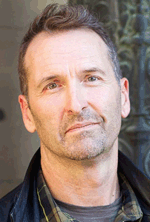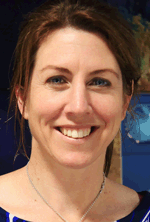The role of marine science in managing environmental risk offshore
Paul E Hardisty A C , Michaela Dommisse B and Karin E Cooper BA Australian Institute of Marine Science, PMB 3, Townsville, Qld 4810, Australia.
B Australian Institute of Marine Science, Indian Ocean Marine Research Centre, University of Western Australia M096, Crawley, WA 6009, Australia.
C Corresponding author. Email: ceo@aims.gov.au
The APPEA Journal 58(2) 562-564 https://doi.org/10.1071/AJ17237
Accepted: 8 March 2018 Published: 28 May 2018
Abstract
Australia’s marine economy is worth over $70 billion a year, of which offshore oil and gas is a big contributor. Operating safely and in an environmentally sustainable way is vital to the long-term success of Australia’s offshore petroleum sector. Making good risk management decisions depends on a sound understanding of the complex marine environments in which they operate. Key emerging challenges include the effects of noise on marine life, decommissioning of offshore infrastructure, and the unprecedented rate of change in natural marine systems.
The Australian Institute of Marine Science (AIMS) undertakes research that helps industry, regulators, government and the wider community to make informed decisions about the management of Australia’s marine estate.
Working closely with industry and government partners, AIMS has established some of the world’s longest running and most comprehensive tropical marine monitoring programs. The regional baseline datasets span the subtropics of Western Australia, the North West and North Marine Regions, through to the Great Barrier Reef and the Coral Sea Marine Region. This unique repository of data and environmental intelligence allows quantification of system changes, modelling of anticipated future trends and impacts of development, and the development and testing of risk mitigation measures. Examples of research specifically tailored to meet the needs of the offshore oil and gas industry include recent projects in noise management, eco-toxicity and machine learning/automation. In each case, AIMS and its science partners worked with industry to develop research programs designed to help manage specific risks, or conduct work more efficiently and safely.
Keywords: automated and remote sensing technologies, baselines, big data, environmental risk management, marine economy.

Dr Paul Hardisty commenced as Chief Executive Officer of the Australian Institute of Marine Science on 24 July 2017. An honours graduate in Geological Engineering from the University of British Columbia, Canada, he has a Masters in Hydrology, and a Doctorate in Environmental Engineering from Imperial College, London. He has been a Visiting Professor in Environmental Engineering at Imperial College, London since 1999 and is an adjunct Professor at the University of Western Australia. Paul has worked extensively in marine and coastal environments and on marine research projects, with many of the stake holder and customer groups that AIMS deals with. He has substantial experience of both the public and private sector. He was the founder, owner and leader of Komex Environmental Ltd – an international environmental consultancy – built from start-up to a $50 million per annum turnover company with a thousand employees and sold to the engineering services company Worley Parsons, in 2006. From 2006 to 2013, Paul served as Global Director, Corporate Responsibility and Global Director, Sustainability and Economics for Worley Parsons. In 2013, he joined CSIRO, initially as Flagship Director, CSIRO Climate Adaptation Flagship, and more recently, as Business Unit Director, CSIRO Land and Water. |

Dr Michaela Dommisse is leading AIMS’ research program for sustainable use of North West Australian marine ecosystems. She has a track record in merging science and business in government, consulting and industry sectors alike. Prior to joining AIMS, Michaela was a lead environmental advisor at INPEX responsible for monitoring and execution of environmental programs for the Ichthys Project. Michaela returned to AIMS in 2017, after completing her PhD at Townsville headquarters in 2001. |

Dr Karin Cooper is leading AIMS’ business development activities in Western Australia. She has a track record in scientific, commercial and regulatory roles relating to management of the marine environment, with emphasis on the offshore oil and gas sector. Prior to joining AIMS, Karin was an environment specialist with NOPSEMA (National Offshore Safety and Environmental Management Authority), at a time of regulatory change driving increased need for marine science effort to underpin environmentally sustainable development. Karin returned to AIMS in 2016, ten years after completing her PhD at Townsville headquarters. |
References
Day, R. D., McCauley, R. D., Fitzgibbon, Q. P., Hartmann, K., and Semmens, J. M. (2017). Exposure to seismic air gun signals causes physiological harm and alters behavior in the scallop Pecten fumatus. Proceedings of the National Academy of Sciences of the United States of America 114, E8537–E8546.| Exposure to seismic air gun signals causes physiological harm and alters behavior in the scallop Pecten fumatus.Crossref | GoogleScholarGoogle Scholar |
Deloitte Access Economics (2016) ‘Australian Institute of Marine Science survey of Australia’s blue economy.’ Available at: https://www.aims.gov.au/aims-index-of-marine-industry [verified 1 May 2018]
Fisher, R., Walshe, T., Bessell-Browne, P., and Jones, R. (2017). Accounting for environmental uncertainty in the management of dredging impacts using probabilistic dose–response relationships and thresholds. Journal of Applied Ecology 55, 415–425.
| Accounting for environmental uncertainty in the management of dredging impacts using probabilistic dose–response relationships and thresholds.Crossref | GoogleScholarGoogle Scholar |
McCauley, R. D., Day, R.D., Swadling, K. M., Fitzgibbon, Q. P., Watson, R. A., and Semmens, J. M. (2017). Widely used marine seismic survey air gun operations negatively impact zooplankton. Nature Ecology & Evolution 1, 0195.
| Widely used marine seismic survey air gun operations negatively impact zooplankton.Crossref | GoogleScholarGoogle Scholar |
Parsons, M. J. G., Meekan, M. G., Miller, K. J., Thums, M., and Gilmour, J. P. (2018). Innovation and technology in marine science: AIMS’ North West Shoals to Shore Research Program. The APPEA Journal 58, .
| Innovation and technology in marine science: AIMS’ North West Shoals to Shore Research Program.Crossref | GoogleScholarGoogle Scholar |


